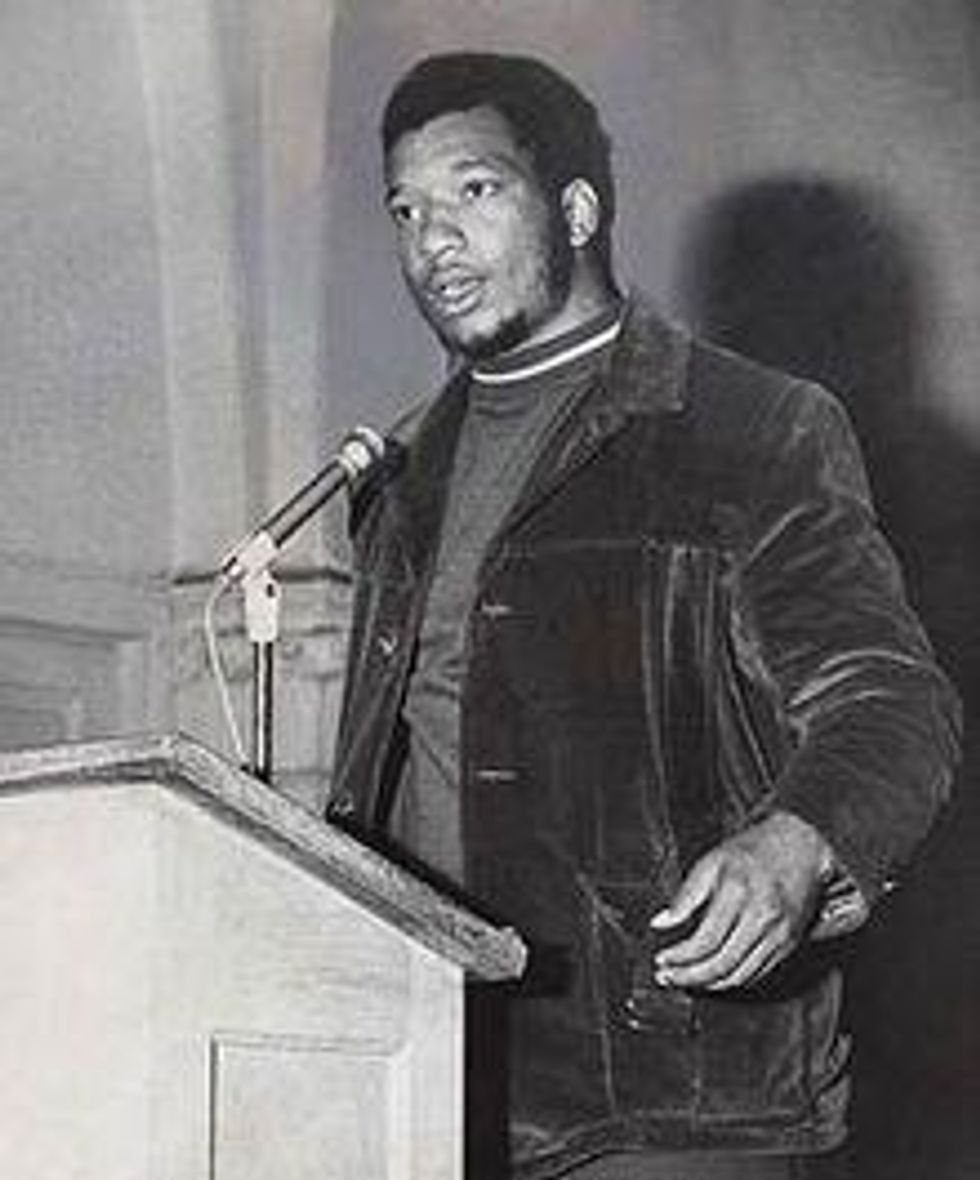Fred Hampton is not a figure often brought up in schools. It's true, while remembering that the anniversary of his assassination was yesterday at the time of this being written (he was killed on December 4th, 1969), I struggled to remember a single instance in which either him or the ideas he represented were brought up in an academic context. The most I could surmise was that Hampton was the chairman of Chicago's Black Panther Party chapter: a political party which is almost exclusively demonized within the context of settler academia. But he accomplished much more than this, and to his work (all accomplished at an incredibly young age, he died when he was 21) and his ideas, I found that there was something worth admiring and taking inspiration from as a young person interested in social justice and change. Especially now, with the initial wave of the Black Lives Matter movement dying down after a co-opting by liberals and apathetic political actors in Washington and an exhaustion of activists who have been in this fight for at least months if not more, risking their safety and in many cases their lives to confront and challenge the authority of the police, I thought that looking to Hampton could be useful in thinking about the future of this movement and how to keep pressure up and in the right place.
Hampton was born in Illinois in 1948 and almost immediately became involved in politics once he was old enough, becoming a key member of his local youth council of the NAACP. At the time of his coming of age, the Black Panther Party was also coming to prominence in many urban centers around the US, including Chicago. Hampton was drawn in by the Party's famous ten-point program, which used Marxist and Maoist economic models to critique the conditions of Black Americans as an oppressed economic and political class of their own, and which offered tangible demands for the government to respond to and to remedy this oppression. Hampton joined the Party and quickly rose to prominence within it, pulling off impressive feats such as a ceasefire between many of Chicago's street gangs at the time.
At the core of Hampton's ideology was the idea of class unity and class struggle. He understood that the racial divides perpetuated by the US, not only between Black communities and white communities but between white communities and other POC communities, as well as between POC communities themselves, only served to dis-empower and neuter the collective working class. According to Hampton and others at the time, the working class was much easier to exploit if it was divided, and these divisions were often exacerbated and perpetuated along racial lines. With this in mind he founded Chicago's Rainbow Coalition with William Fesperman from the Young Patriots Organization and Jose Jimenez from the Young Lords, two radical socialist organizations founded by white and Latinx leftists respectively. The coalition went on to acquire many groups in the Chicago area, all of whom were dedicated to the eradication of poverty, an end to state terror, and the abolition of racist and imperialist structures like the prison industrial complex and an end to the Vietnam War. Each group within the coalition would support each other, offering up bail money, numbers at protests, and cross-city organizing to help with food and housing insecurity in Chicago.
Unfortunately, Hampton's story doesn't have a happy ending. Fearing the power of his and his contemporaries' ideas, and as a part of the FBI's larger program of COINTELPRO, a decades long effort which is still going on today to dislodge, attack, and create divisions within left-wing activist groups, the FBI had an order placed for his assassination. (Content Warning, Police Brutality and Gun Violence): In the early hours of the morning of December 4th, the Chicago Police Department, in conjunction with the FBI and Cook County Sheriff's Department, broke into Hampton's apartment (which was being visited by several members of the Party which was normal at the time), killed member Mark Clark, shot several others, and then went into Hampton's bedroom and shot him twice in the head while he was sleeping next to his pregnant fiancee. Hampton had been drugged the night before by an FBI informant, making him unaware of the raid as it happened. The Chicago Police Department fired 90 to 99 bullets in the incident, whereas the Panthers only fired one, a misfire that happened when Clark fell and his finger twitched and shot his gun into the ceiling (the Panthers were known for their open-carry stance on guns, arguing it was much harder to oppress minorities in the US when they were armed, and that oppressed groups in the US had just as much of a right to own a gun as the ruling class did). His funeral was attended by thousands, and besides a several hundred thousand dollar settlement, no legal action was taken against the men who raided the apartment.
So what is there to learn from the story of Fred Hampton? While he met a tragic and untimely end, it is important to remember that he was killed for his ideas, because those ideas had weight. Although not solely his own, the idea that the only way to resist oppression in this country is to form multi-racial coalitions in which people are able to support and uplift each other is a powerful one, and one that needs to be looked to in order to capitalize on the energy in this historical moment. It is an idea that the ruling class was so terrified of that they killed a man for simply speaking it, and it is a powerful one when thinking about how to end the oppressive hierarchies and structures that so many Americans suffer from every year.
















